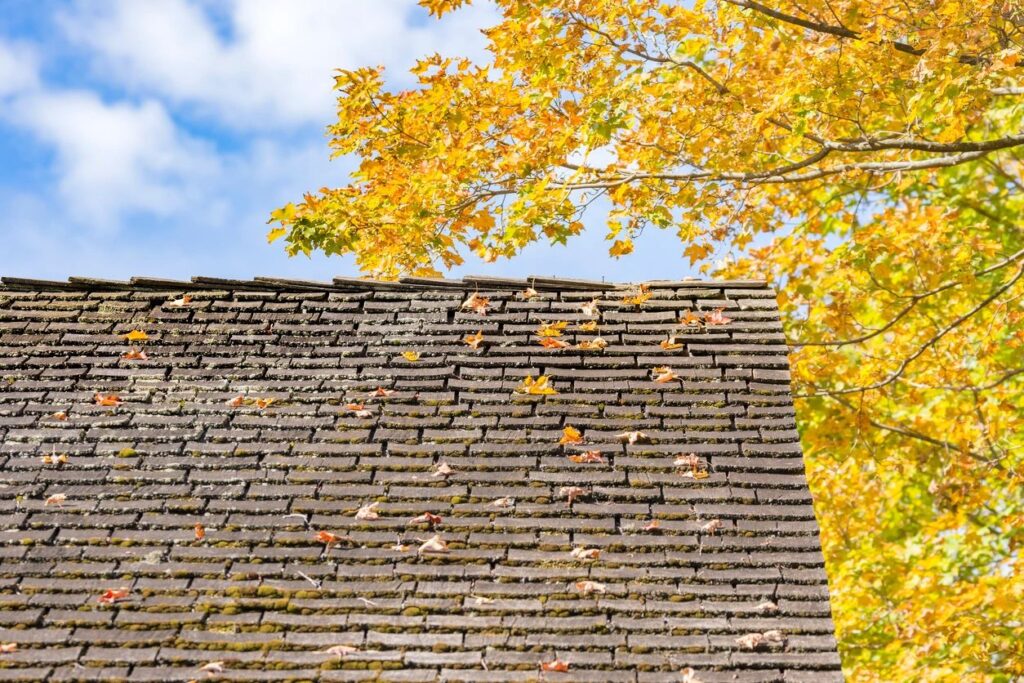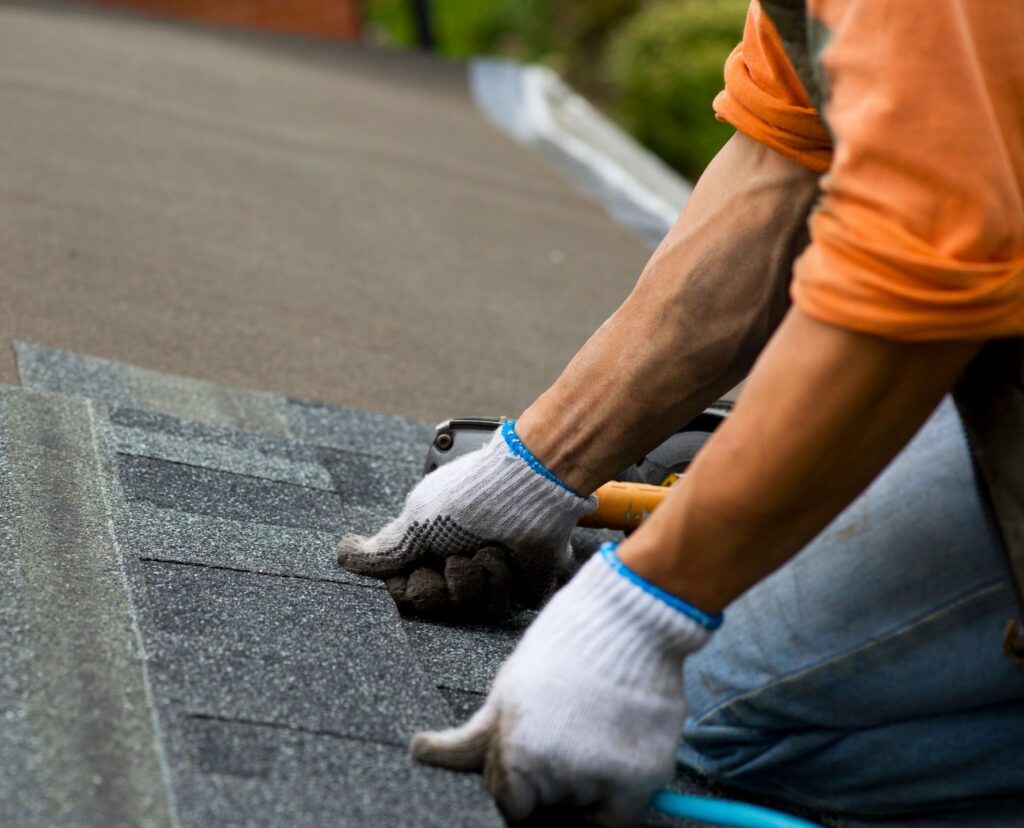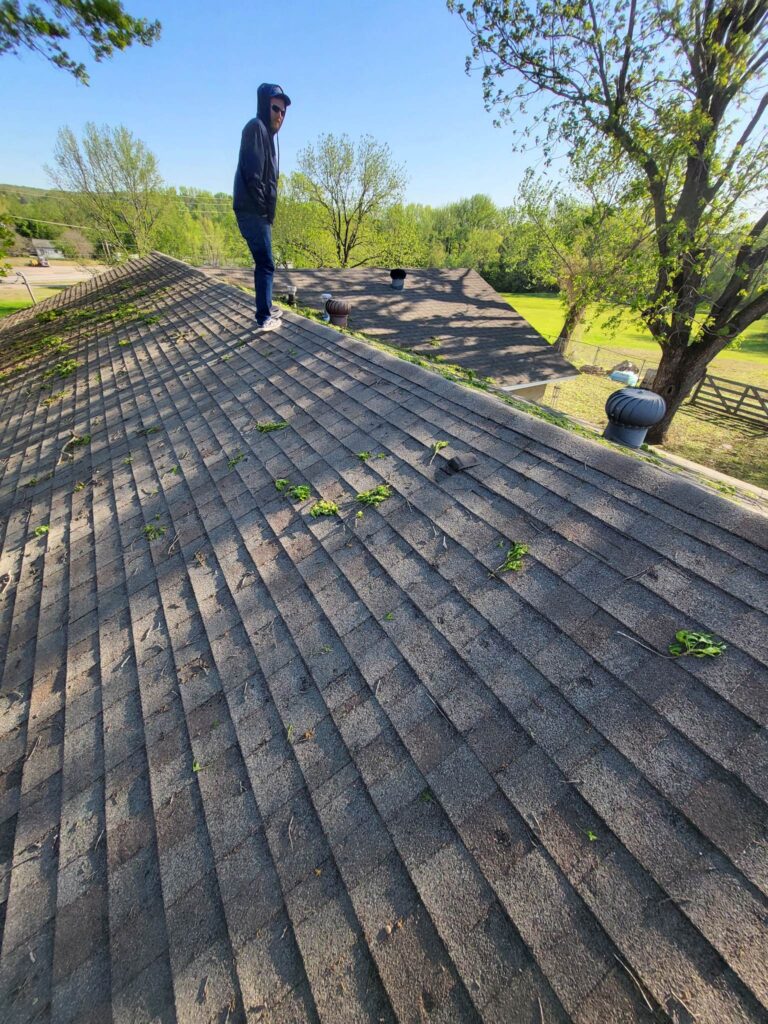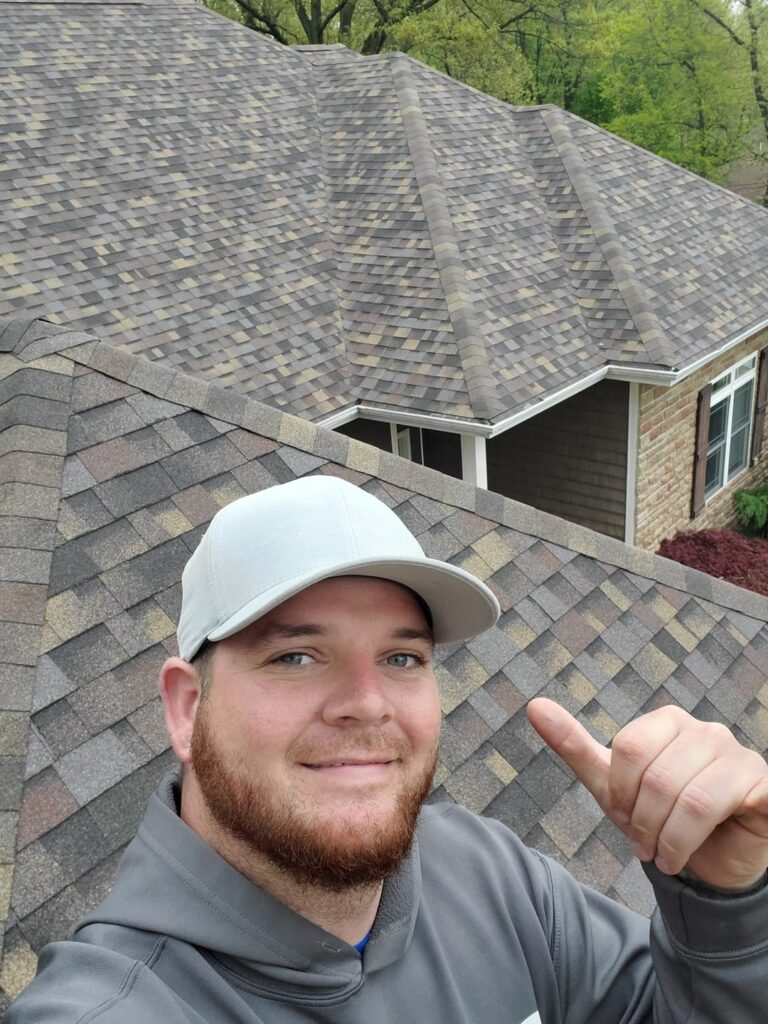
A home’s roof isn’t just about curb appeal; it’s a protective shield against the elements. If you’re considering installing a new roof, you probably have a host of questions. Let’s get to the bottom of the most common questions homeowners have.
How do I know if I need a new roof?
Over time, a roof can show signs of wear, signaling the need for a replacement. Look out for:
Age: If it’s over 20-30 years old, it’s nearing its expected lifespan.
Damaged shingles: Curled edges, buckling centers, or completely missing shingles.
Sunlight peeking through: A clear sign of gaps or holes.
Chronic leaks: These can lead to mold and structural damage if not addressed.
Granules in gutters: A sign of deteriorating shingles.

How much will my new roof cost?
Several factors play into the cost of a new roof:
Size: A larger area requires more materials and labor.
Materials: Premium materials like slate or metal can be pricier.
Location: Costs vary regionally due to labor and material availability.
Roof’s complexity: Steeper roofs or those with multiple chimneys and skylights might cost more. On average, homeowners spend between $5,000 to $25,000, but this can fluctuate based on the above factors.
How do I choose the right roofing material?
Selecting the best material involves balancing aesthetics, durability, maintenance, and budget:
Asphalt shingles: Popular due to affordability and variety.
Wood shakes: Offer a rustic appearance but require more maintenance.
Metal: Durable and available in various styles.
Slate: Long-lasting and elegant but on the pricier side.
Tiles: Ideal for Mediterranean or Spanish-style homes. Evaluate local weather patterns and consult a roofing expert to guide your choice.

What is the typical duration for roof installation?
Factors influencing installation time include:
Weather: Rain can cause delays.
Roof size and complexity.
Material chosen: Some materials take longer to install. Typically, expect anywhere from 2 days to 3 weeks. Having said that, our crew has done a complete asphalt roof installation in a single day!
Can I lay a new roof over the old one?
While you may be tempted to due to potential savings, we don’t recommend it. Overlaying can:
Conceal underlying issues.
Overburden the house’s structure.
Shorten the new roof’s lifespan.
It’s best to start afresh for a long-lasting solution.

How can I maximize my roof’s lifespan?
Routine inspections can prevent small issues from becoming big problems. Keep your gutters free from debris, have damaged shingles replaced promptly, and invest in proper attic insulation to prevent ice dams.
Can I just install a roof myself?
DIY roofing might seem cost-effective but can lead to:
Safety risks.
Improper installation affecting roof longevity.
Voided material warranties.
Hiring a professional to do the job means having someone with the expertise, tools, and insurance gives you peace of mind that the job will be done right — saving you both time and money.
What about warranties?
There are a couple of warranties that you should insist on with your new roof:
Manufacturer’s warranty: Covers defects in roofing materials.
Contractor’s warranty: Covers installation quality.
If you don’t understand the terms, inclusions, and exclusions, ask your contractor to explain them to you.
What maintenance will my new roof require?
Regular maintenance can extend a roof’s life. This includes:
Annual inspections.
Clearing moss and algae.
Replacing damaged or missing shingles.
Making sure you have proper attic ventilation.

How do I select a roofing contractor?
Do diligent research:
Check for licenses and insurance.
Read reviews and testimonials.
Ask for past project references.
Evaluate their experience and specialties.
Insist on clear communication and written contracts.
Installing a new roof is more than just an aesthetic upgrade; it’s about safety, efficiency, and investment protection. Our goal with this FAQ is to make your decision-making process a little easier. Remember, the key to a successful roofing project lies in knowledge, expert guidance, and proactive maintenance.
